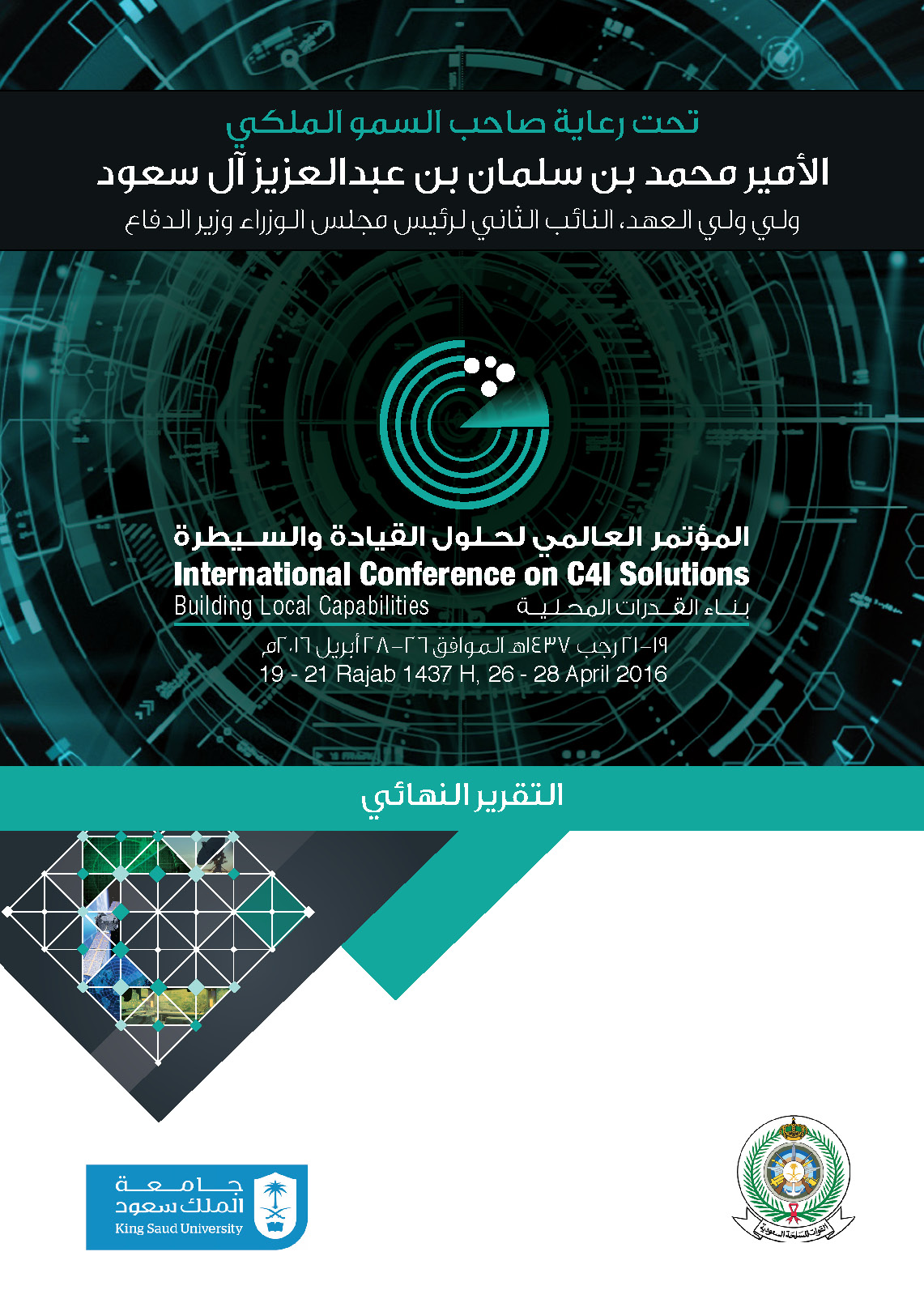Recommendations
The conference resulted in a set of recommendations made by speakers and participants as follows:
- Underscoring the need to hold the conference on a regular basis given its utmost importance in the defense, security and civil fields, its main role in shedding light on the latest command, control, communication, computer, intelligence, and cybersecurity techniques and systems, and in attracting the highest quality local and foreign experts in the field.
- Calling for the creation of a specialized “Command and Control Systems and Solutions” National Center, to act as a reference that contributes to achieving the Kingdom’s vision (2030) to support and develop the “Command and Control Systems”. The Center’s work entails:
- Supporting knowledge and technology transfer and local embedment
- Supporting research and development with specialized academic and research entities at the local and international levels.
- Setting a roadmap for the development of current systems and identification of the main challenges facing development.
- Enhancing government support to the military and civil sectors in order to encourage and locally embed the command and control systems and solutions. The support shall be sustainable and motivational.
- Inviting the private sector to support initiatives aimed at developing and locally embedding the command and control systems, especially in the industrial sector, be it through private initiatives or qualitative partnerships with the public and military sectors.
- Highlighting the necessity to provide a joint support from the government and industrial sector to encourage the current national corporations or start-ups in the field of command and control systems and solutions.
- Stressing the importance for the C4ICAS affiliated to the King Saud University –being the only university in the region to ever host such a center- to supervise higher studies scholarship programs specialized in command and control techniques in collaboration with foreign prestigious universities, and for the sectors taking advantage of the command and control systems (Ministries of Defense, Interior and Labor, etc…) to specify a percentage of annual scholarship holders to join such programs.
- Working on establishing a central engineering reference for the command and control systems, adapted to any relevant changes and developments in those systems, notably in the military and industrial fields and in the different affiliated units on land, at sea and in the air.
- Focusing on the importance of “modernizing” the command and control systems, through their regular update, and making sure they are not confined to specific operational programs, but rather aligned with different systems operating such techniques.
- Fostering innovation for young and creative talents in the field of command and control systems, and attracting them through programs and incentives, especially those with high potential of dealing with technology systems of high accuracy. Different success stories can be fully inspiring in that regard, particularly the experience of the Ted and Karyn Hume Center For National Security and Technology) in the United States of America.
- Supporting universities in their role as mediators in the making of technology innovators, identifying challenges ahead and reporting them to stakeholders including the Ministries of Defense and Interior, in order to overcome the obstacles and pave the way for as much opportunities as possible to foster their innovations.
- Creating a system of cooperation and complementarity among the command and control centers spread across the kingdom, including the centers of Ministries, Police, airports, ports, survey and geographical information systems’ centers, in order to unify their visions especially when it comes to joint matters and issues, to avoid having different solutions for the same matter.
- Stressing the importance of planning to find a unified national strategy for the command and control systems, one that would identify and anticipate challenges while suggesting appropriate solutions.

